SERMONS
January 25, 2026
LATEST TEACHING
GEnesis 37:5-11
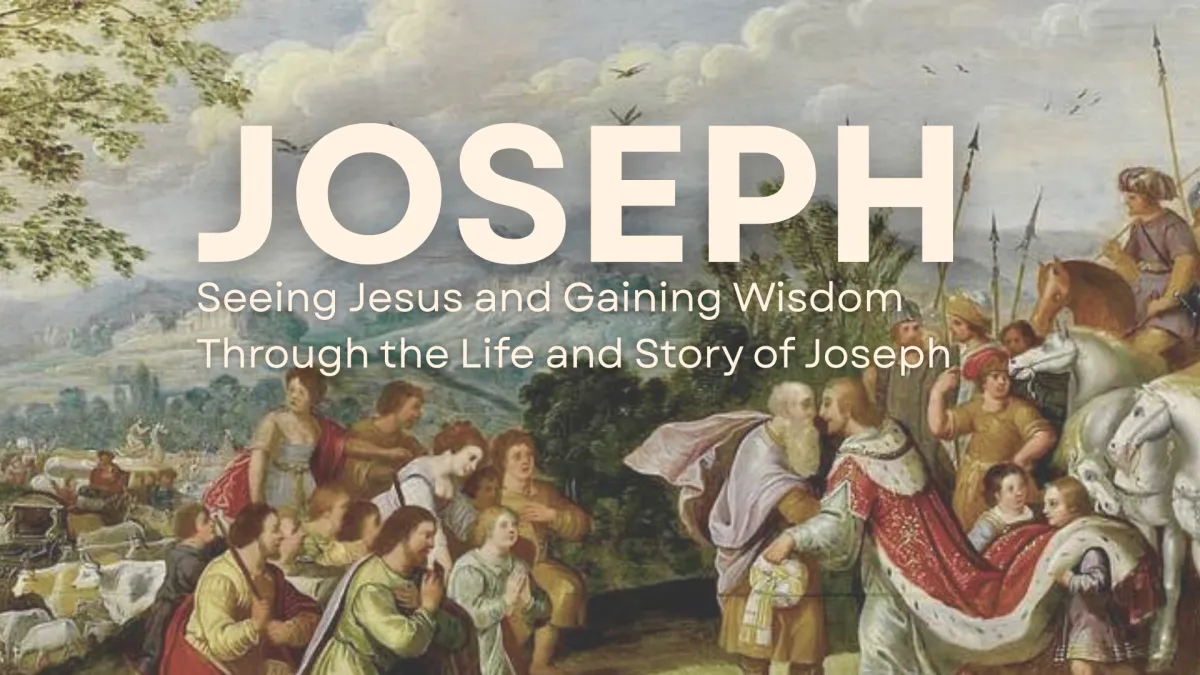
Part 2: "Divine Revelation"
In this sermon, we continue our new expositional study of Joseph (Genesis 37-50) by looking at the nature and purpose of Joseph's dreams. The two dreams raise many very important and relevant questions for us—is there a God and has he revealed himself to us? How do we understand the revelation of God and faithfully live in light of it? What's the purpose of God's word?
TEACHING LIBRARY

January 18, 2026
"A Faithful Witness"
Rev. Jeremy A. McKeen
Scripture: Genesis 37:1-4
In this sermon, we begin our new expositional study of Joseph (Genesis 37-50). This message looks at Genesis 37:1-4 and seeks to answer the following: How do we read stories like this in the Bible? How does Joseph point us to Jesus? How do we become a faithful witness despite opposition? How do we know we have the Father's love? And what is the secret to personal courage and truth telling?
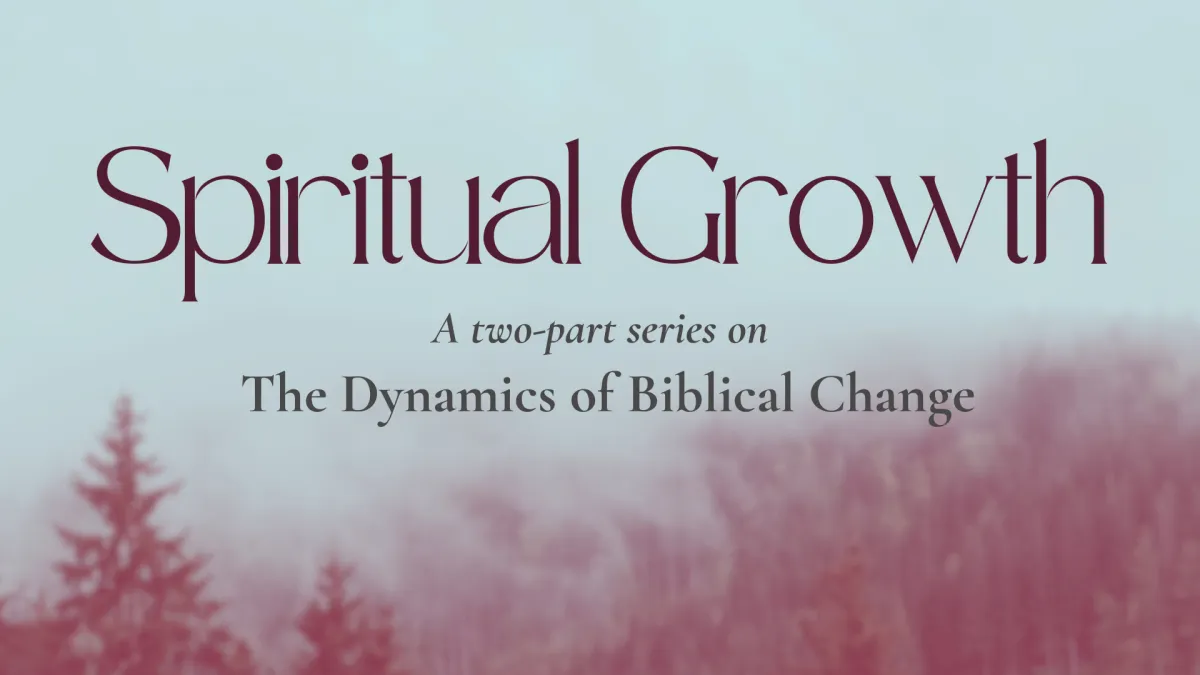
January 11, 2026
"The War Within"
Rev. Jeremy A. McKeen
Scripture: Romans 7:14-8:1
In this sermon, we look at our ongoing battle with indwelling sin and how to experience hope in the struggle. What should we expect in terms of our spiritual growth? How do we make progress in putting sin to death? And how do we experience hope in the midst of ongoing moral failures?

January 04, 2026
"The New Way of the Spirit"
Rev. Jeremy A. McKeen
Scripture: Romans 7:4-6
What makes Christianity different from every other spiritual philosophy and self-improvement program? How does Jesus and the gospel change the way we think about change? What is the "new way of the Spirit" that Paul mentions in Romans 7? In this sermon, we consider the difference between the new way of the Spirit and the old way of the written code and several of it's practical implications.
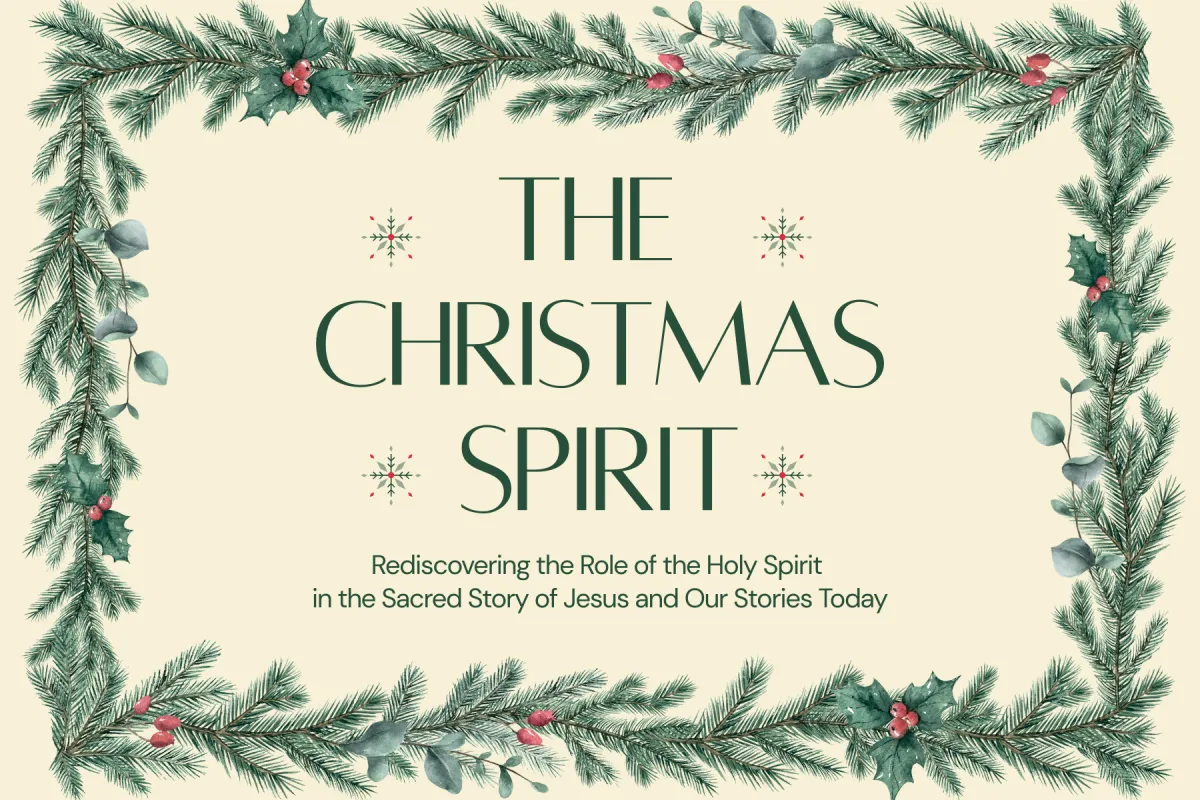
December 28, 2025
"The Spirit and Hope"
Rev. Terry Shanahan
Scripture: Luke 2:21-35
What are you waiting for? What are you hoping for? How do our expectations relate to our everyday lives? And what is the relationship between the Holy Spirit and our hope? In this sermon, taught by guest preacher, Terry Shanahan, we consider the role of the Holy Spirit in the life of Simeon. This message draws out several things we can learn from Simeon about the nature of hope and what our hope should be in.

December 24, 2025
"What Christ Offers"
Rev. Jeremy A. McKeen
Scripture: Luke 2:1-20
What does Christ and Christianity offer the world? How can you tell the difference between Christianity and all the other spiritual philosophies out there? What does the Holy Spirit want us to see about Jesus and his Lordship? In this Christmas Eve homily, we consider all of these questions and more as we look at what Luke is showing us in the announcement of Jesus' birth to the shepherds and the baby they find in the manger.

December 21, 2025
"The Spirit and Fellowship"
Rev. Jeremy A. McKeen
Scripture: Luke 1:39-45
What are the marks of Christian fellowship and why is it so important? What makes Christian community so unique? And how do we develop a stronger community together? In this sermon, we consider Mary's visit with Elizabeth and draw out several things we can learn from their visit about the fellowship of the Spirit that believers are meant to enjoy.

December 14, 2025
"The Spirit and Faith"
Rev. Jeremy A. McKeen
Scripture: Luke 1:34-38
What is faith? How do you know if you're walking by faith or not? Is faith rational? How do you grow in your faith? And what is the relationship between the Holy Spirit and our faith? In this sermon, we consider all of these questions and more as we look at Mary's exchange with the angel. This message draws out several things we can learn from Mary about the nature of faith and the evidence of faith.

December 07, 2025
"The Spirit and Life"
Rev. Jeremy A. McKeen
Scripture: Luke 1:26-35
What is our hope for things to change in our lives? Answer: the Holy Spirit. What is the heart of Christianity? Answer: the life of Christ imparted to us. In this sermon, we consider how the gift that Mary receives and the process she went through is parallel to the gift of new life that every Christian receives. Mary is presented, not as the Mother of the church, but as a model of the church in the life we receive by the Holy Spirit.

November 30, 2025
"The Spirit and Strength"
Mr. Luke Fagerson
Scripture: Ephesians 3:14-21
What is our hope to live out the Christian life? The answer to this critical question is the strength of the Holy Spirit. But how does the Spirit strengthen us? What does that actually look like? In this sermon, delivered by RTS student, Luke Fagerson, we consider three things that the Apostle Paul models for us in order to better understand and experience the strengthening of the Holy Spirit.
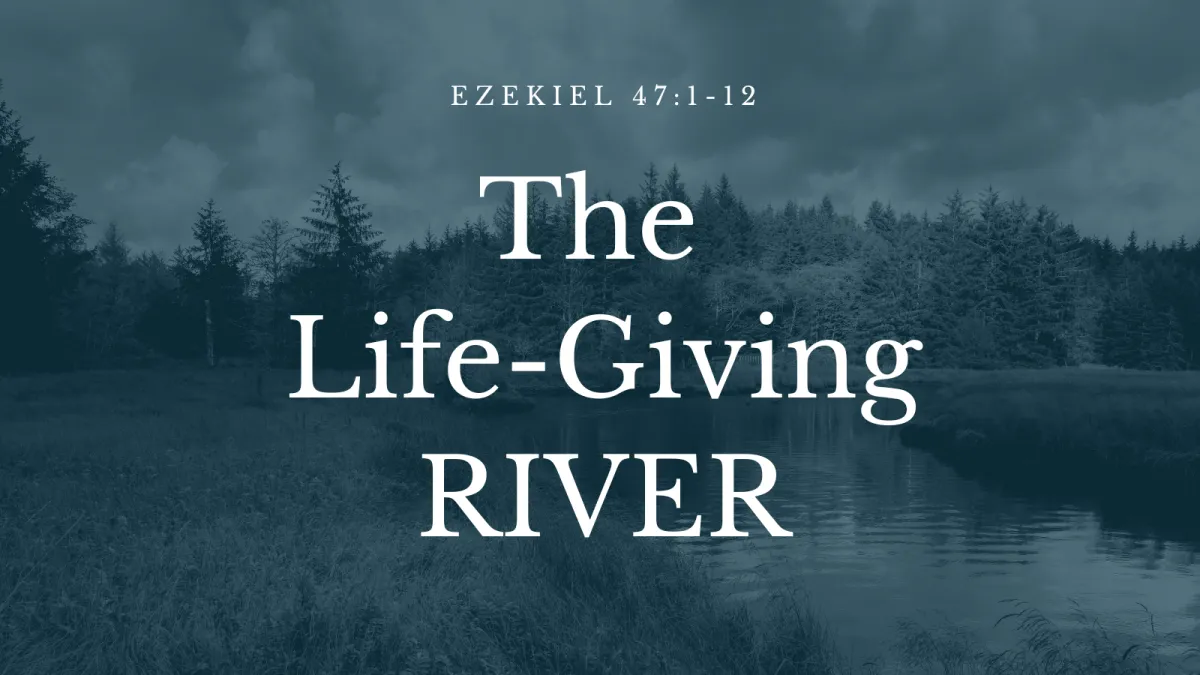
November 23, 2025
"The Life-Giving River"
Rev. Jeremy A. McKeen
Scripture: Ezekiel 47:1-12
What is the vision of our church? The answer to this question must begin by asking what is the nature of the church and God's vision for the church. In this sermon from Ezekiel 47, the central text that shaped the vision of our church, we consider the themes of the temple and the river and how we encounter and become a channel of God's life-giving presence to others.

November 16, 2025
"Integrity"
Rev. Jeremy A. McKeen
Scripture: Proverbs
What is biblical integrity? Why is integrity so important? And how do we develop it more in our lives and community? How do we become a fellowship of transparency and integrity? In this sermon, based on a series of Proverbs, we consider how the truth of the gospel develops a deeper morality, sincerity, and consistency in our lives.
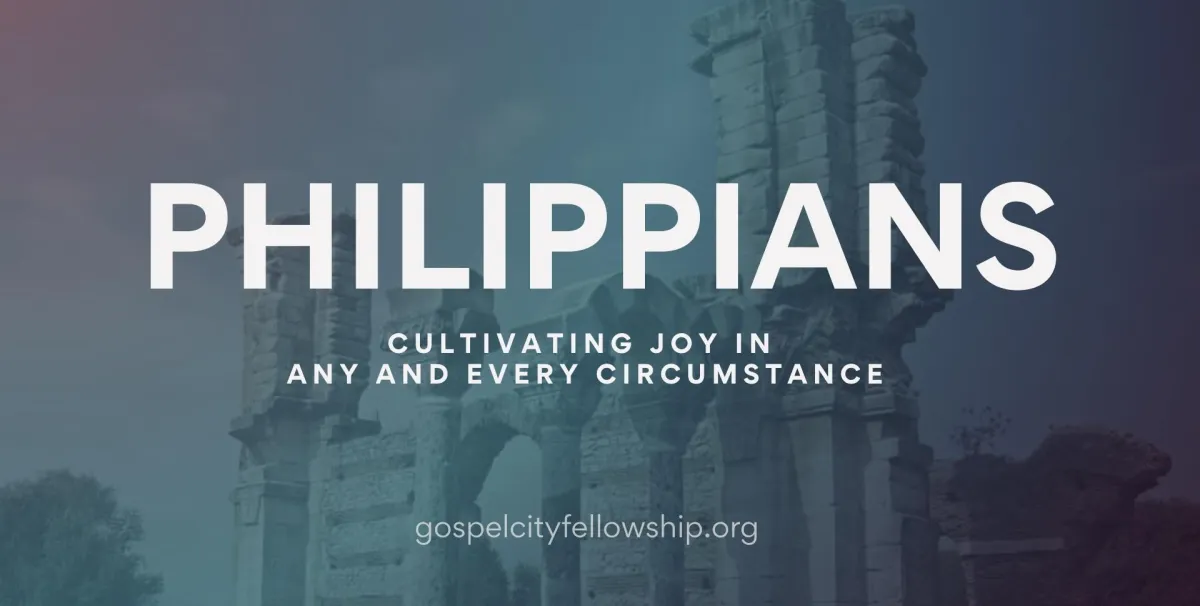
November 09, 2025
Part 25: "Life in the Lord"
Rev. Jeremy A. McKeen
Scripture: Philippians 4:21-23
What is the nature and heart of real Christianity? How is Christianity different than the way people tend to think it is? What does it mean to be "in the Lord"? And why does that matter? What difference does it make to our day-to-day lives? In this sermon, we conclude our study of Philippians by looking at how the final few verses summarize the practical theology of our union with Christ.

November 02, 2025
Part 24: "Stability in Times of Need"
Rev. Jeremy A. McKeen
Scripture: Philippians 4:14-20
We are a bundle of needs, but some are more acute and pressing than others. How do we find stability when we're facing a time of significant need? How do the promises of God and our faith in those promises provide stability in life? In this sermon, we consider an overarching principle to live by, an amazing promise to believe, and a practical process to take part in.

October 26, 2025
Part 23: "Learning the Secret"
Rev. Jeremy A. McKeen
Scripture: Philippians 4:10-13
How do we live a life of contentment? What is true biblical contentment, and why does Paul call the key to contentment a 'secret'? In this sermon, we consider both the nature of true contentment and why the strength of Christ is the secret we all need to learn and draw upon to experience contentment in any and every circumstance.

October 19, 2025
Part 22: "Practice These Things"
Rev. Jeremy A. McKeen
Scripture: Philippians 4:4-9
How do we live free of worry and full of peace? How do we live with untroubled hearts in a troubled world? In this sermon, we consider two of three essential disciplines that Paul encourages the church to practice more and more in order find peace in the midst of our difficulties.

October 12, 2025
Part 21: "Experiencing God's Peace"
Rev. Jeremy A. McKeen
Scripture: Philippians 4:4-7
If there's one thing we're all looking for, it's to experience peace in our world and lives. But what is the difference between the world's type of peace and God's peace? How do we experience more of God's peace in the midst of our difficulties? This sermon considers two practices that can lead us to peace.

October 05, 2025
Part 20: "The Gospel in Relationships"
Rev. Jeremy A. McKeen
Scripture: Philippians 4:1-3
How can the gospel of Jesus heal and shape our relationships with one another? What are some gospel principles and gospel methods we can apply in conflict resolution? In this sermon, we consider how to apply the sacrificial love and servant-minded humility of Jesus to our disagreements with one another.

September 28, 2025
Part 19: "Every Reason to Hope"
Rev. Jeremy A. McKeen
Scripture: Philippians 3:20-21
Is Christian hope just nothing but blind optimism? How can grief and hope go together? What makes Christian hope so unique? In this message, Pastor Jeremy shares five unique characteristics about Christian hope and how it can carry us through every wave of grief.
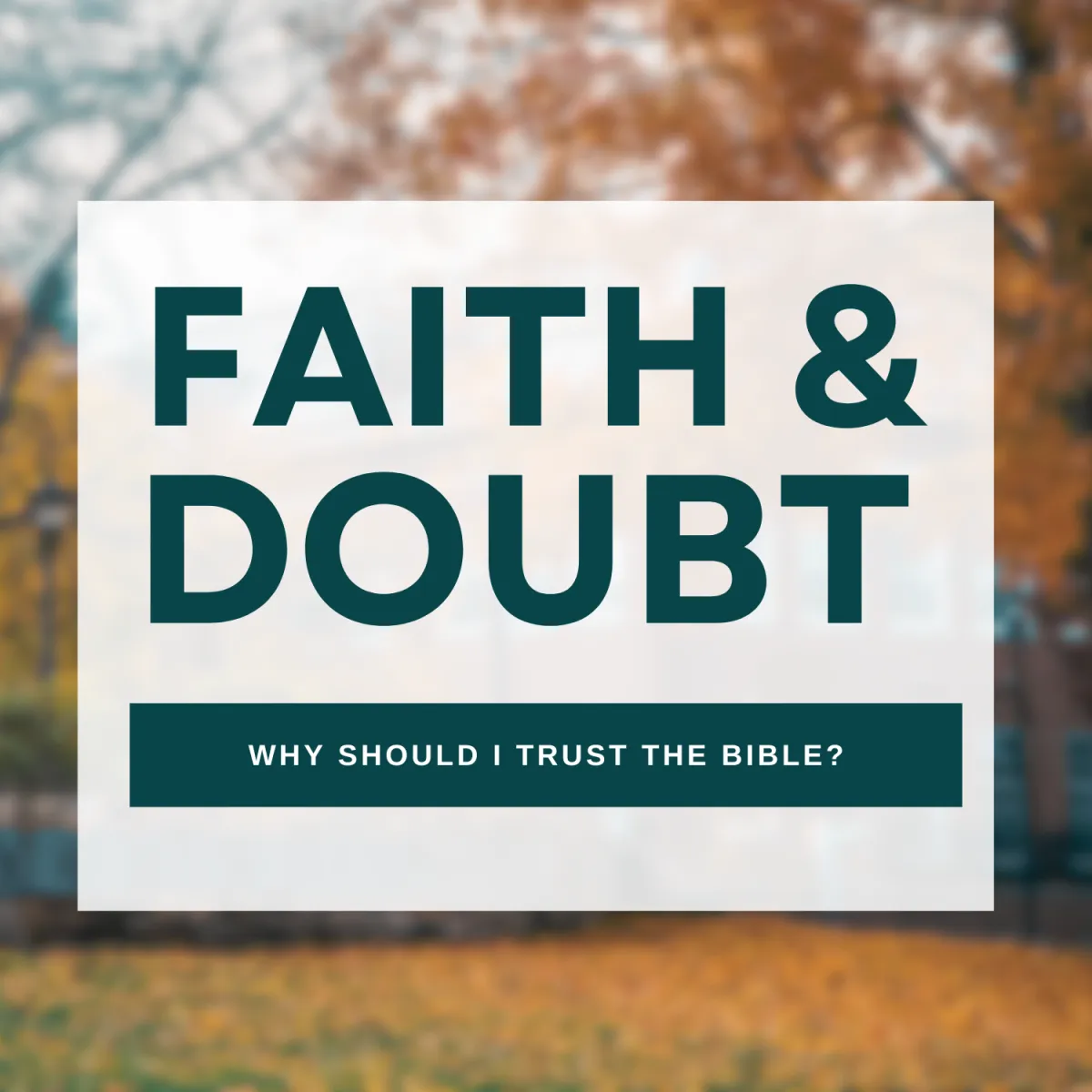
September 24, 2025
Faith & Doubt: "Why Should I Trust the Bible?"
Rev. Jeremy A. McKeen
Scripture: Various
This talk was delivered on the campus of UNH at our Faith & Doubt Collaborative. It was the opening address before taking several questions from the students. In this message, Pastor Jeremy shares five unique answers to the question, "Why Should I Trust the Bible?"
*We apologize for the poor audio quality of this recording.

September 21, 2025
Part 18: "A Cross-Shaped Life"
Rev. Jeremy A. McKeen
Scripture: Philippians 3:114
The cross of Jesus not only saves our lives, it also shapes our lives. But what does a cross-shaped life look like? Why is the cross-shaped life the path of joy? And how can we determine if we're living as a friend of the cross or as an enemy of the cross?

September 14, 2025
Part 17: "Fellowship and Recovery"
Rev. Jeremy A. McKeen
Scripture: Philippians 3:13-14
As a follow up to the previous week's study in Philippians, in this message we look at some practical steps in pursuing fellowship with Christ and also how to return to Christ if you've broken the fellowship. How de we develop fellowship with God, and how do we recovery after a fall?
*We apologize for the poor audio quality towards the middle and end of this recording.

September 07, 2025
Part 16: "Pursuing Joy in Christ"
Rev. Jeremy A. McKeen
Scripture: Philippians 3:12-16
What are you pursuing in life? Beneath all our pursuits, there is a deep universal longing for joy. In the letter of Philippians, Paul teaches us that God doesn't take this universal pursuit of happiness and reject it; He redirects it and refocuses it. In this sermon, we look at Paul's pursuit of joy in Christ—the thinking we need to avoid, and the thinking we need to adopt.

August 31, 2025
Part 15: "Power For New Living"
Rev. Jeremy A. McKeen
Scripture: Philippians 3:10-11
Why do we need Jesus? What is so unique about the Christian faith? How does Christianity uniquely approach the area of personal change? In this sermon, we look at what Paul calls "the power of His resurrection." What is this power? What's it for? And how do we experience this power for new living more and more in our lives?
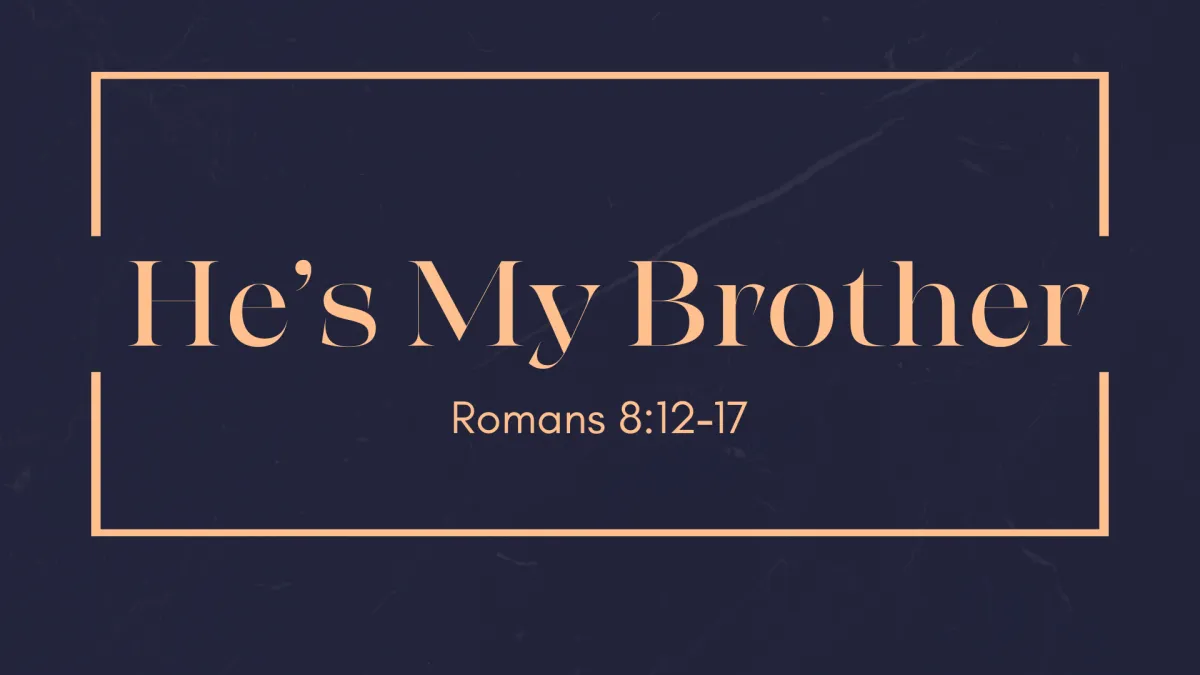
August 24, 2025
"He's My Brother"
Rev. Jonthan Conant
Scripture: Romans 8:12-17
How should we understand our ultimate identity as Christians? What does being a child of God mean for us on a daily basis? In this sermon, given by guest preacher Rev. Jonathan Conant, we consider the deep assurance of our sonship in Christ, the call to no longer live as spiritual orphans, and how our identity as God's children should impact the way we treat others.
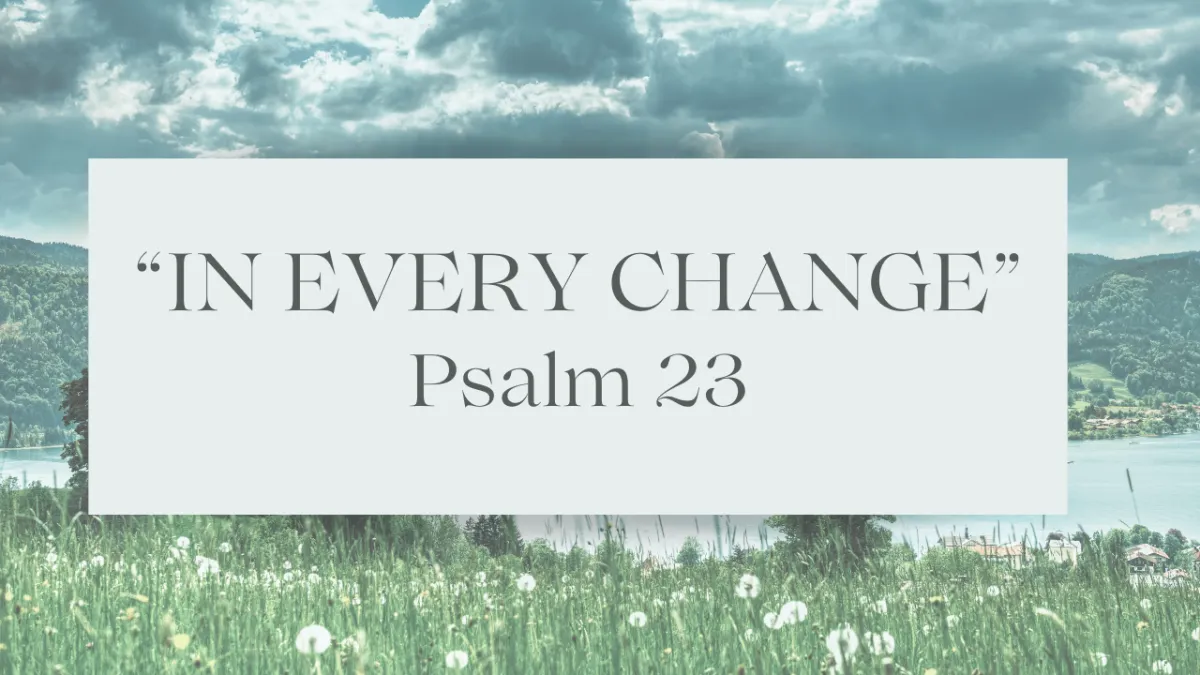
August 17, 2025
"In Every Change"
Rev. Jeremy A. McKeen
Scripture: Psalm 23
Psalm 23 is arguably the most known passage in the entire Bible, but do we know the Good Shepherd and Gracious Host that this Psalm is pointing us to? In this sermon, we consider some of the key lessons that David teaches us in this "transition Psalm" on how to navigate change in our lives. What can we expect the Lord to do for us in the seasons of change? And how can we experience His care and leading more and more each day?

August 10, 2025
Part 14: "Justification Through Faith"
Rev. Jeremy A. McKeen
Scripture: Philippians 3:1-9
In arguably the most theological section in this entire letter, Paul teaches us that our daily experience of joy is intricately linked to our justification through faith. In this sermon, we consider the deep joy in this doctrine, the dangerous threats to rejoicing in it, and some of the daily implications of it for our lives and church.

August 03, 2025
Part 13: "The Marks of Servant Leadership"
Rev. Jeremy A. McKeen
Scripture: Philippians 2:17-30
The need in our changing world is not for a new form of leadership to be adopted, but for an old form of leadership to be recovered—the servant-minded leadership of Jesus. But what does servant-leadership look like in our lives on a daily basis? In this sermon, we consider the 3 examples of servant-leadership that Paul gives and the marks we can glean from each.

July 27, 2025
Part 12: "Changing Our Attitude"
Rev. Jeremy A. McKeen
Scripture: Philippians 2:14-18
How do we change our attitude in life? How should we understand our attitude when it comes to our spiritual walk before God and our witness before others? In this sermon, we consider five key principles about our attitude and how the gospel is meant to reshape the way we face our problems.
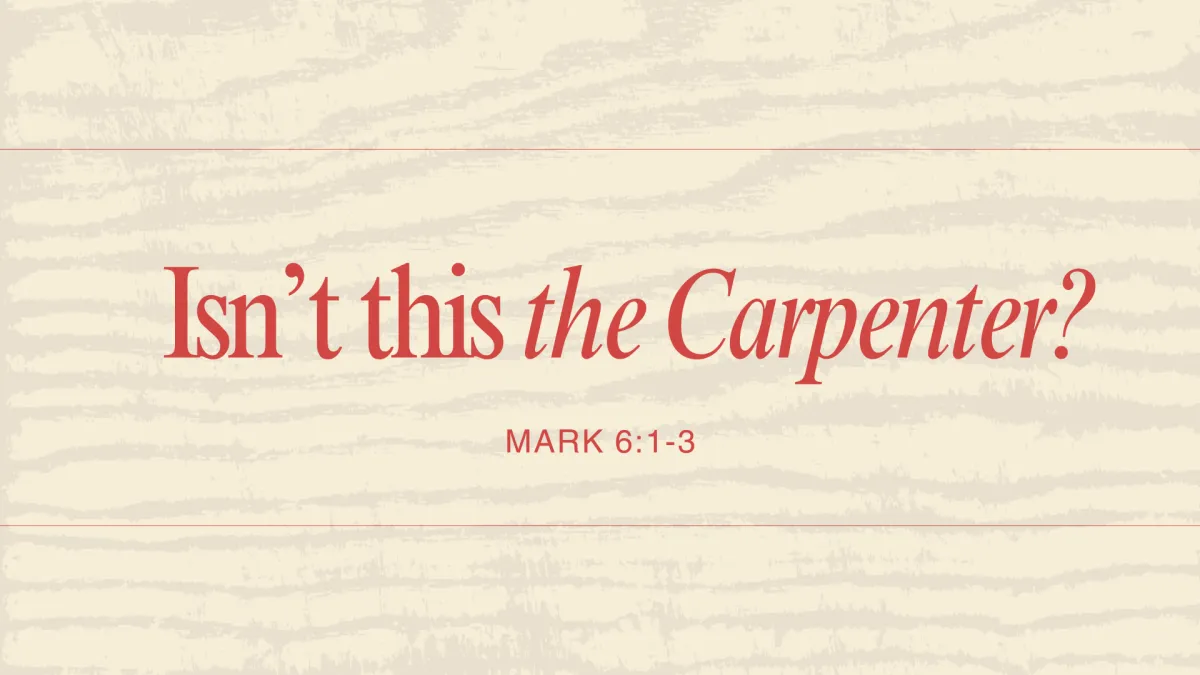
July 20, 2025
"Isn't This the Carpenter?"
Mr. Randy Van Dyke
Scripture: Mark 6:1-3
Many people wrongly think of "the Lord's work" as simply full-time church ministry. There tends to be a false disdain for blue-collar work, even in the church today. In this homily, Randy Van Dyke, shares about the carpentry ministry of Jesus, his own experience working at UPS, and what we can learn about the value of our everyday work.

July 13, 2025
Part 11: "Rethinking Obedience"
Rev. Jeremy A. McKeen
Scripture: Philippians 2:12-13
Many people think we need to sacrifice our joy for the sake of obedience, or we've got to sacrifice our obedience for the sake of joy. That we can't have both, right? Wrong. In this sermon, we see how the gospel reshapes the way we think of obedience and instead of hindering our joy is the pathway into it.

July 06, 2025
Part 10: "The Lordship of Jesus"
Rev. Jeremy A. McKeen
Scripture: Philippians 2:5-11
Someone or something will always serve as a functional "Lord of our lives"—our authority for truth and standard for living—be it our culture, friends, self, etc.. This sermon considers the good news of Jesus' universal Lordship, what it means, why it matters, and what we should do about it.

June 29, 2025
Part 9: "Learning Humility"
Rev. Jeremy A. McKeen
Scripture: Philippians 2:3-11
In many cases, there's not an eagerness to learn humility, because we largely misunderstand humility. Over and over in Philippians, Paul teaches that humility is the path to joy. But what is humility? What is it not? Why is it so important? And how do we develop it in our lives? This sermon considers the nature, source, example, choice, and blessings of humility,

June 22, 2025
Part 8: "Reasons to Work Together"
Rev. Jeremy A. McKeen
Scripture: Philippians 2:1-2
Many people today are fine with Jesus but have little interest in the church. Why is belonging to the church so important? How should believers envision church unity? And what are some key reasons to work well together? This sermon considers the vision and the reasons for the church's missional unity.
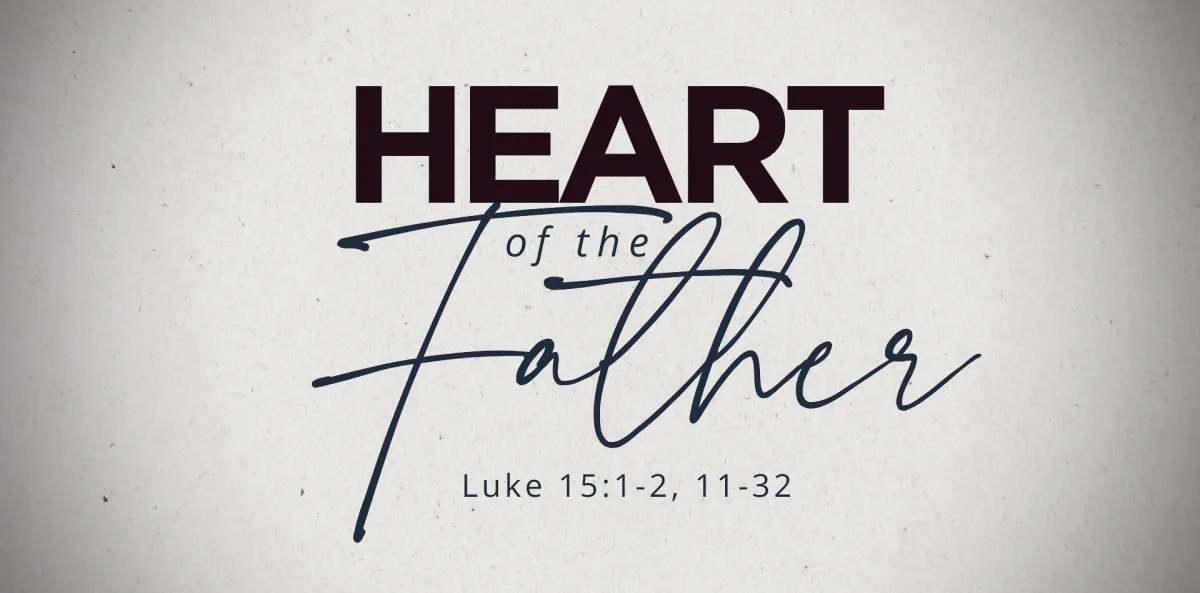
June 15, 2025
"Heart of the Father"
Mr. John DeBaun
Scripture: Luke 15:1-2, 11-32
What is God really like? What is God's heart towards those who've turned their back on Him? On this Father's Day weekend, special guest John DeBaun teaches from Jesus' Parable of the Prodigal Son. In this sermon we consider 1) What does it mean to be lost? 2) What is God's heart towards the lost? And 3) How do we find our way back home?

June 08, 2025
Part 7: "Citizens and Soldiers"
Rev. Jeremy A. McKeen
Scripture: Philippians 1:25-30
How do we joyfully and confidently live out our Christian faith in the midst of hostility? In this passage, Paul answers this key question by drawing upon two identities or metaphors for the Christian life—citizens and soldiers. This sermon considers these two identities and what they mean for our everyday lives together.

June 01, 2025
Part 6: "Our Purpose and Hope"
Rev. Jeremy A. McKeen
Scripture: Philippians 1:21-24
In one sentence, Paul summarizes a Christian's philosophy on life. In capsule form, we're given the Christian outlook on life and on death. And in this one statement, Paul teaches us that if we're not experiencing joy in life, our problem isn't the circumstances of life; it's our philosophy of life. It's our purpose and hope that must be reconsidered.

May 25, 2025
Part 5: "Envy: The Thief of Joy"
Rev. Jeremy A. McKeen
Scripture: Philippians 1:15-18
Envy comes to steal joy and contentment from our hearts. So, what can be done about it? How do we spot it in our own lives? How do we understand it? And how does the gospel heal us more and more from it? This sermon considers these critical questions and more.

May 18, 2025
Part 4: "God, What Are You Doing?"
Rev. Jeremy A. McKeen
Scripture: Philippians 1:12-20
One of the amazing things about the letter of Philippians is that it takes two things we wouldn't think can go together—difficult circumstances and deep joy—and it puts them together. In this sermon, we consider the problem we all face in life and the perspective we all need to face it with joy.

May 11, 2025
Part 3: "The Love We Need"
Rev. Jeremy A. McKeen
Scripture: Philippians 1:9-11
One of the main paths to joy is the path of love. But what type of love do we really need? What is Christ's love? What is Christian love? In these few verses, Paul gives a masterclass on Christian love. And in this sermon, we consider the nature, growth, result, source, and goal of Christian love.

May 04, 2025
Part 2: "The Neglected Path to Joy"
Rev. Jeremy A. McKeen
Scripture: Philippians 1:3-8
How do we experience a joy that's not dependent upon our circumstances? As we consider the heart of Paul behind these words of Paul, we discover the open secret of the Christian life and the heart posture that leads us to joy.

April 27, 2025
Part 1: "The Christian Life"
Rev. Jeremy A. McKeen
Scripture: Philippians 1:1-5
How do we experience a joy that's not dependent upon our circumstances? Many people think of the joyful life and the Christian life as two very separate, very opposite things. But in Philippians, Paul explains how real Christianity and real joy go hand in hand. In the opening verses we learn three key facets of the Christian life that lead us into joy.
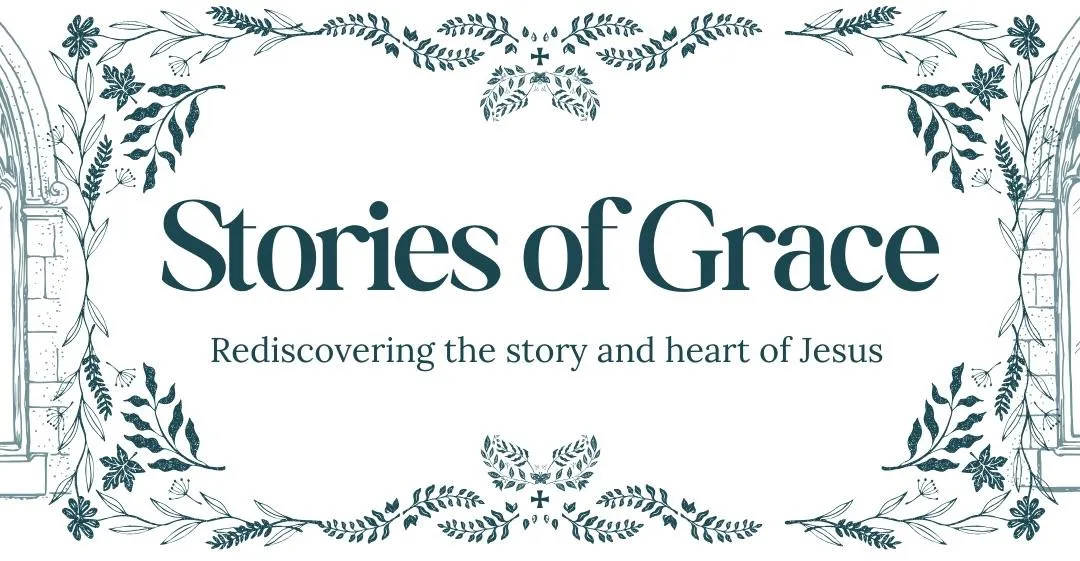
April 20, 2025
Part 5: "A Story of Hope"
Rev. Jeremy A. McKeen
Scripture: Luke 24:13-35
Where can we find hope? Not a naïve optimism or wishful thinking, but a rock-solid certainty that the best is yet to come, and despite our hardships, everything is ultimately going to be okay. In this Easter sermon, we consider what the Emmaus walk can teach us about the source of hope, the channel of hope, and the experience of hope.

April 13, 2025
Part 4: "A Story of Disruption"
Rev. Jeremy A. McKeen
Scripture: Luke 23:25-26
Life is full of disruptions. So, how do we keep the disruptions of life from driving us to despair? How do we understand the different types of disruptions and carry our cross in a hope-giving way? In this sermon, we look at two people whose lives were disrupted by Jesus and what it means for all our disruptions as well.

April 06, 2025
Part 3: "A Story of Healing"
Rev. Jeremy A. McKeen
Scripture: Luke 22:47-53
How can we tell the difference between the world's use of power and Christ's use of power? And how do we become the type of church that's characterized by the healing power of love instead of the harmful love of power? This sermon considers the healing love of Christ and what that means for the church.

March 30, 2025
Part 2: "A Story of Strength"
Rev. Jeremy A. McKeen
Scripture: Luke 22:39-46
How do you find the strength to go on when the story of your life feels like a tragedy? What do we do when the story of our lives feels like it's being written by someone who doesn't care? How do we find the inner resilience to face the deep sufferings and unexpected trials of life? In this sermon we consider how the gospel gives us the inner strength we all need.

March 23, 2025
Part 1: "A Story of Faith"
Rev. Jeremy A. McKeen
Scripture: Luke 22:31-34
We live in a time where the Christian faith is often misunderstood, and thereby, rejected as irrational and irrelevant. Moreover, many Christians themselves feel burnt out with Christianity. In the following sermon, we consider the heart of Christian faith and the heart of Christ for those who are tired of trying so hard.

Follow Us
Gospel City Fellowship is a mission church of the Presbyterian Church in America (PCA). We're in the beginning stages of cultivating a reformed community in the city of Portsmouth, NH that is Gospel-centered, City-positive, and Fellowship-focused.
Mission
We exist to be a faithful witness to the gospel of Jesus by joyfully serving the Lord, each other, our community, and the world.
Contact Us
561-762-7715
75 Congress St, Suite 214, Portsmouth, NH
- Monday - Friday, 8:00 am - 5:00 pm
Copyright. © 2023. Gospel City Fellowship (PCA). All rights reserved.
